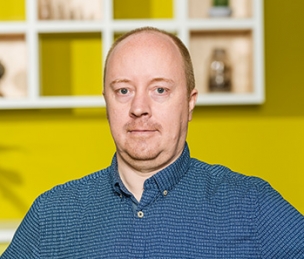Displaying 1 - 5 of 5
-
Van den Heuvel, H., Oostdijk, N., Rowland, C. F., & Trilsbeek, P. (2020). The CLARIN Knowledge Centre for Atypical Communication Expertise. In N. Calzolari, F. Béchet, P. Blache, K. Choukri, C. Cieri, T. Declerck, S. Goggi, H. Isahara, B. Maegaard, J. Mariani, H. Mazo, A. Moreno, J. Odijk, & S. Piperidis (
Eds. ), Proceedings of the 12th Language Resources and Evaluation Conference (LREC 2020) (pp. 3312-3316). Marseille, France: European Language Resources Association.Abstract
This paper introduces a new CLARIN Knowledge Center which is the K-Centre for Atypical Communication Expertise (ACE for short) which has been established at the Centre for Language and Speech Technology (CLST) at Radboud University. Atypical communication is an umbrella term used here to denote language use by second language learners, people with language disorders or those suffering from language disabilities, but also more broadly by bilinguals and users of sign languages. It involves multiple modalities (text, speech, sign, gesture) and encompasses different developmental stages. ACE closely collaborates with The Language Archive (TLA) at the Max Planck Institute for Psycholinguistics in order to safeguard GDPR-compliant data storage and access. We explain the mission of ACE and show its potential on a number of showcases and a use case. -
Trilsbeek, P., Broeder, D., Elbers, W., & Moreira, A. (2015). A sustainable archiving software solution for The Language Archive. In Proceedings of the 4th International Conference on Language Documentation and Conservation (ICLDC).
Additional information
http://hdl.handle.net/10125/25288 -
Broeder, D., Sloetjes, H., Trilsbeek, P., Van Uytvanck, D., Windhouwer, M., & Wittenburg, P. (2011). Evolving challenges in archiving and data infrastructures. In G. L. J. Haig, N. Nau, S. Schnell, & C. Wegener (
Eds. ), Documenting endangered languages: Achievements and perspectives (pp. 33-54). Berlin: De Gruyter.Abstract
Introduction Increasingly often research in the humanities is based on data. This change in attitude and research practice is driven to a large extent by the availability of small and cheap yet high-quality recording equipment (video cameras, audio recorders) as well as advances in information technology (faster networks, larger data storage, larger computation power, suitable software). In some institutes such as the Max Planck Institute for Psycholinguistics, already in the 90s a clear trend towards an all-digital domain could be identified, making use of state-of-the-art technology for research purposes. This change of habits was one of the reasons for the Volkswagen Foundation to establish the DoBeS program in 2000 with a clear focus on language documentation based on recordings as primary material. -
Broeder, D., Claus, A., Offenga, F., Skiba, R., Trilsbeek, P., & Wittenburg, P. (2006). LAMUS: The Language Archive Management and Upload System. In Proceedings of the 5th International Conference on Language Resources and Evaluation (LREC 2006) (pp. 2291-2294).
-
Trilsbeek, P., & Wittenburg, P. (2005). Archiving challenges. In J. Gippert, N. Himmelmann, & U. Mosel (
Eds. ), Essentials of language documentation (pp. 311-335). Berlin: Mouton de Gruyter.

Share this page